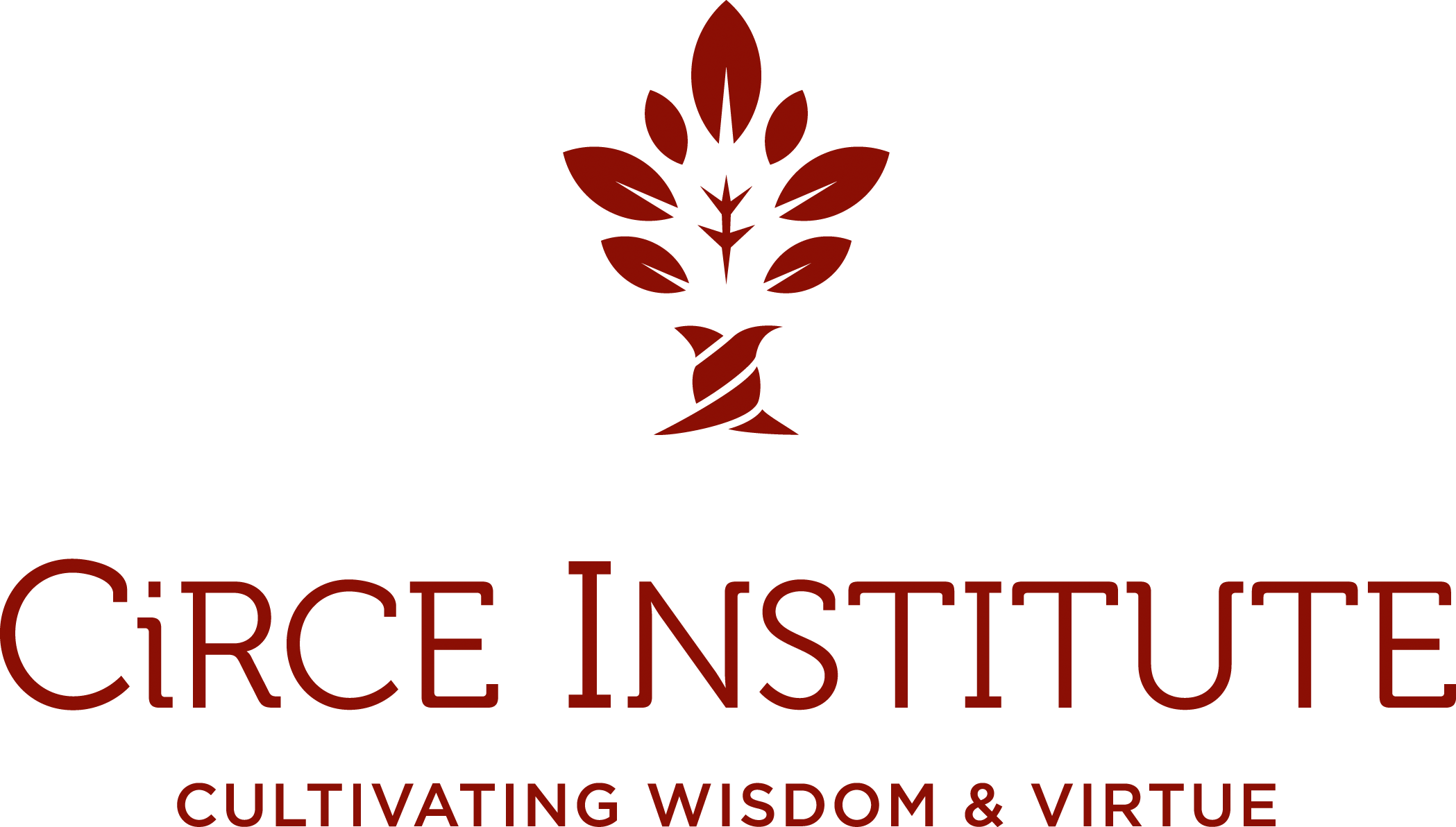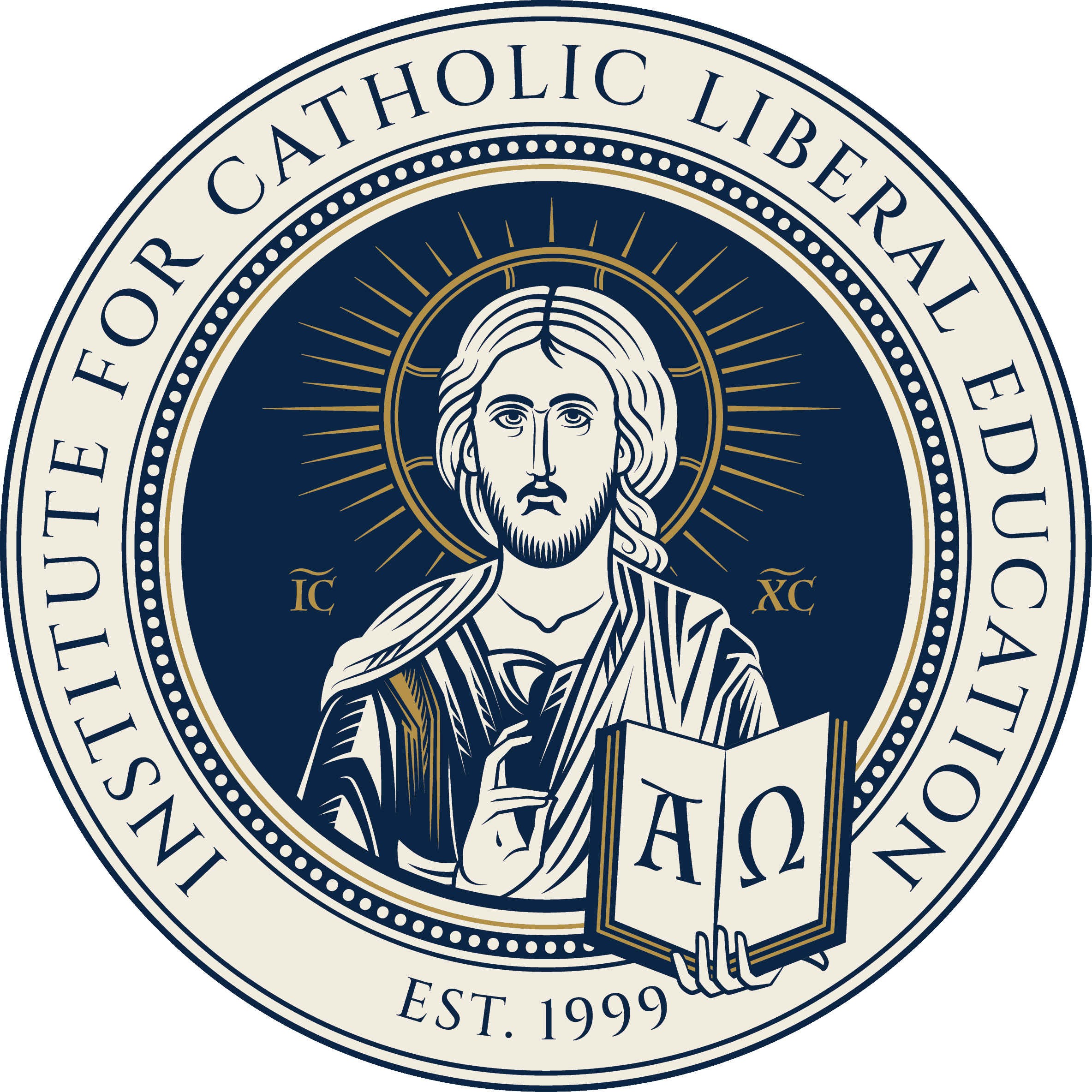Master of Arts in Classical and Liberal Education
Master of Arts in Classical and Liberal Education
Education Rooted in Pursuit of Truth
Now Accepting Applications!
Does the classical revival in K-12 education give you hope for future generations of youth? Do you feel called to be a teacher or leader in this movement? The Master of Arts in Classical and Liberal Education will provide the formation necessary for you to flourish as an educator, leader, or administrator in a classical K-12 school setting. By studying classical pedagogy, the great books, the liberal arts, and the Catholic intellectual tradition, you will examine life’s fundamental questions and explore how to practically apply these principles in forming students in the true, the good, and the beautiful.
Belmont Abbey College is excited to partner with CiRCE, ICLE, and Veterum Sapientia Institute for this engaging program!
Possible career paths:
- Teacher at classical or liberal arts K-12 Catholic, Christian, or charter schools
- Administrator at classical or liberal arts K-12 Catholic, Christian, or charter schools
- Leader of homeschooling networks
request more information
Program Details
Belmont Abbey Pathway:
- Complete all required coursework (30 credit hours) through Belmont Abbey College.
- Required content courses–any seven of the following:
- MCE 601: Trivium I – Grammar and Logic
- MCE 602: Trivium II – Classical and Christian Rhetoric
- MCE 603: Quadrivium
- MCE 604: The Quarrel Between Poetry and Philosophy
- MCE 605: Faith and Reason
- MCE 606: Great Books on Education
- MCE 607: Democracy in America
- MCE 608: Rome and Romans
- MCE 613: On Liberal Education and the Medieval Mind
- Required pedagogy sequence–any three of the following:
- MCE 609: Advanced Special Topics in Classical Pedagogy and Thought I
- MCE 610: Advanced Special Topics in Classical Pedagogy and Thought II
- MCE 611: Advanced Special Topics in Classical Pedagogy and Thought III
- MCE 612: Advanced Special Topics in Classical Pedagogy and Thought IV
ICLE Pathway:
- Complete coursework through ICLE (12 credit hours) and 18 credit hours at Belmont Abbey College.
- Required BAC Courses–any six of the following:
- MCE 601: Trivium I – Grammar and Logic
- MCE 602: Trivium II – Classical and Christian Rhetoric
- MCE 603: Quadrivium
- MCE 604: The Quarrel Between Poetry and Philosophy
- MCE 605: Faith and Reason
- MCE 606: Great Books on Education
- MCE 607: Democracy in America
- MCE 608: Rome and Romans
- MCE 613: On Liberal Education and the Medieval Mind
CiRCE Pathway:
- Complete coursework through CiRCE (12 credit hours) and 18 credit hours at Belmont Abbey College.
- Required BAC Courses–any six of the following:
- MCE 601: Trivium I – Grammar and Logic
- MCE 602: Trivium II – Classical and Christian Rhetoric
- MCE 603: Quadrivium
- MCE 604: The Quarrel Between Poetry and Philosophy
- MCE 605: Faith and Reason
- MCE 606: Great Books on Education
- MCE 607: Democracy in America
- MCE 608: Rome and Romans
- MCE 613: On Liberal Education and the Medieval Mind
VSI Pathway:
- Complete coursework through Veterum Sapientia Institute (12 credit hours) and 18 credit hours at Belmont Abbey College.
- Required BAC Courses–any six of the following:
- MCE 601: Trivium I – Grammar and Logic
- MCE 602: Trivium II – Classical and Christian Rhetoric
- MCE 603: Quadrivium
- MCE 604: The Quarrel Between Poetry and Philosophy
- MCE 605: Faith and Reason
- MCE 606: Great Books on Education
- MCE 607: Democracy in America
- MCE 608: Rome and Romans
- MCE 613: On Liberal Education and the Medieval Mind
- MCE 601: Trivium I – Grammar and Logic
- MCE 602: Trivium II – Classical and Christian Rhetoric
- MCE 603: Quadrivium
- MCE 604: The Quarrel Between Poetry and Philosophy
- MCE605: Faith and Reason
- MCE 606: Great Books on Education
- MCE 607: Democracy in America
- MCE 608: Rome and Romans
- MCE 609: Advanced Special Topics in Classical Pedagogy and Thought I
- MCE 610: Advanced Special Topics in Classical Pedagogy and Thought II
- MCE 611: Advanced Special Topics in Classical Pedagogy and Thought III
- MCE 612: Advanced Special Topics in Classical Pedagogy and Thought IV
It is the student’s responsibility to see that all degree requirements for graduation are fulfilled.

The CiRCE Institute’s Apprenticeship Program is an in-depth, personal teacher development community in which a Master Teacher mentors a small group of educators in classical rhetoric and classical modes of instruction. It’s founded on the idea that to feed students properly, teachers must feed themselves. With mentorship and community at its core, it’s a program for teachers (from all walks of life) who want to drink deeply from the wisdom of the ages, engage in inspiring conversation with like-minded friends, and push hard towards Truth, Wisdom, and Virtue.
The mentor/apprentice relationship–and the community that springs out of it–is the very heart of the program. Each of our seven groups is kept small so that mentors and apprentices can truly know each other. The mentors guide the apprentices by providing assessment that blesses them, accountability that strengthens them, and regular discussions that nurture them. The environment is welcoming and safe, the community develops over shared meals and stories, the pedagogy is founded on Christian classical education forms, and the assessment is for the apprentice to flourish. These are the things that set this teacher training program apart.
The CiRCE Apprenticeship is a three-year program. To receive certification, apprentices must do the following:
- Attend six retreats (one summer and one winter each year)
- Teach lessons at the retreats from the Lost Tools of Writing
- Teach lessons at home from the Lost Tools of Writing
- Attend two webinars each month, September through May
- Complete requisite assigned writing assignments
- Implement mimetic instruction at home or in the classroom
- Read all assigned literature
- Pass biannual evaluations
- Mentor a first-year apprentice
- Prepare and teach an original mimetic lesson at a retreat
- Lead a Socratic discussion
- Fulfill all payment obligations
Head mentors assess apprentices on their participation, teaching, and writing. In December and May they offer individual evaluations, providing specific feedback with suggestions for improvement.

True Catholic education should place Jesus Christ, the Logos, at its center; so too with its teacher formation. Guided by The Holy See’s Teaching on Catholic Schools and the Church’s long tradition in the liberal arts and sciences, ICLE has designed a robust 18-month program that serves as an alternative to state teacher licensure. The Catholic Educator Formation and Credential (CEFC) program prepares educators to infuse a deeply Catholic philosophy and practice of education into their teaching. The credential earned by teachers in the CEFC program is designed to be portable and recognized by dioceses across the nation in lieu of state licensure.

Intended for individuals with a passion for the Latin and Greek languages, this certification is designed to give current and aspiring teachers the tools to make their Latin classes more interactive, and integrate the Catholic faith into their student learnings. This is the first-of-its-kind credential to teach Latin in an integrated, Catholic approach using active pedagogy from the only pontifically-approved institution for Latin and Greek language study in the United States.
Students will take seven 3-credit courses that combine weekly online small group seminars along with other asynchronous assignments and activities. These 8-week courses, meant to be able to be completed in two semesters, can be seen below. Belmont Abbey courses can be completed before, after, or concurrently with the ICLE, CiRCE, or Veterum Sapientia Institute programs. The price per graduate credit hour at Belmont Abbey is $600.
Application Deadline: July 31st
Application Requirements:
-
- Admission to the program is determined by evaluating a combination of factors. These factors include:
- Undergraduate GPA
- Academic Preparation in a related field
- Work Experience in a related field
- Applicants are not required to have an undergraduate degree in a particular field or discipline.
- International students whose primary language is not English must demonstrate English Language Proficiency according to College approved methods and thresholds ( For example, minimum TOEFL score—89 IBT) NOTE: Students will be admitted and enrolled as Full-time Cohorts. Admission entry point in both fall and spring semesters.
- Students may enroll as part-time or full-time students. Part-time status will extend the total length of the program beyond the standard 10-12 months.
- Admission to the program is determined by evaluating a combination of factors. These factors include:
- Explore an alternative to licensure through ICLE, CirCE, and Veterum Sapientia Institute Credential programs, paired with a Master of Arts in Classical and Liberal Education from Belmont Abbey
- Advance your career in Classical Education and make an impact on future generations
- Opportunity to hone your skills and experience under the guidance of nationally-ranked professors in the classical, liberal arts plus educational leaders
- Connect with like-minded individuals who believe in the power that classical education has to shape the world
- No GRE required
- Low tuition costs
- No out-of-state fees
- Program can be completed in just 12 months!
| Course Name |
Course Number | Course Description |
| 1) Grammar and Logic | MCE 601 | Students in this course will engage in an exploration of the first two parts of the classical trivium, grammar and logic. Texts will include Sr. Miriam’s Trivium and selections from Aristotle’s Organon. This course provides students with an understanding of the classical approach to “critical thinking”. |
| 2) Classical and Christian Rhetoric | MCE 602 | Students in this course will engage in an exploration of the third part of the classical trivium, rhetoric. Aristotle’s Rhetoric, Cicero, De Oratore, St. Augustine’s De Doctrina Christiana (Book IV). This course provides students with an understanding of the classical approach to “critical thinking” and writing. |
| 3) Quadrivium | MCE 603 | This course explores how students come to understand the world through numbers. In particular it seeks to help students understand the development of classical and modern geometry and algebra through and exposure through the foundational texts in these areas. This course provides students with an understanding of a classical approach to mathematics. |
| 4) The Quarrel Between Poetry and Philosophy | MCE 604
|
This course, which takes its title from a famous line in Plato’s Republic, will expose students to two major ways that humans come to know the world, the poetic and the philosophic. Examined texts are likely to include the following texts: Plato’s Ion, Plato, Republic, Aristotle’s Poetics, James Taylor Poetic Knowledge. Nietzsche, The Birth of Tragedy, St. John Henry Newman’s “The Mission of St. Benedict.” |
| 5) Faith and Reason | MCE 605 | This course will expose students to both faith and reason’s relationship to the pursuit of truth. It will also examine the limits of both and the ways in which they interact with one another. Texts might include: Sophocles’ Antigone, Aeschylus’ Prometheus Bound, Plato Euthyphro, John Paul II’s Fides et Ratio, St. Thomas Aquinas’ Question I of Summa Theologiae, St. Augustine’s De Doctrina Christiana (Books I-III), St. Basil’s “Address to Young Men on the Right Use of Greek Literature”, Pope Benedict XVI, “Regensburg Address”,Josef Pieper’s “The Philosophic Act” from Leisure: The Basis of Culture. |
| 6) Great Books on Education | MCE 606 | This course exposes students to a series of writings on the philosophy of education by some of the greatest minds in the Western Tradition. Texts will likely include Plato’s Republic (selections), Aristotle’s Politics (Book VIII), Augustine On the Teacher, Aquinas On the Teacher, Locke’s Some Thoughts Concerning Education, Rousseau’s Emile (selections), John Dewey (select writings), St. John Henry Newman’s The Idea of the University. |
| 7) Democracy in America | MCE 607 | This course will expose students to texts suitable for teaching the American political tradition to K-12 students through the great books. The course will focus on Tocqueville’s Democracy in America and texts by the American Founders. This course provides students with a deep understanding of our American and democratic souls and a classical approach to civics education. |
| 8) Rome and Romans | MCE 608 | This course will examine the great ancient city of Rome and Romans through the eyes of three great authors: Plutarch, St. Augustine, and William Shakespeare. |
| 9-12) Advanced Special Topics in Classical Pedagogy and Thought I-IV | MCE 609-612 | These courses are fulfilled through the student’s engagement in a rigorous teaching apprenticeship program focused on classical pedagogy offered by one of our partner institutions or through classical pedagogy courses offered at Belmont Abbey College. |
Get Your Questions Answered
With Abbey Online, students get the flexibility of an online program with the quality of an in-person program. We tailor digital learning to fit your needs, from flexible programs to affordable course materials to support from your advisor every step of the way.
Conversatio: The Hope of Classical Education
Dr. Joseph Wysocki joins Andrea Lipinski of CiRCE and Elisabeth Sullivan of the Institute for Catholic Liberal Education (ICLE) to discuss the pursuit of truth in the classroom and the hope found in classical education.






